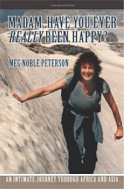Being gay in 2024 is not the same as being gay in 1970. At least not from society’s standpoint. It’s still difficult for a teenage boy, but fifty years ago it was the worst possible scenario. Most gay boys and young men did everything they could to hide it at great cost to their mental and emotional wellbeing. The most pejorative label you could sling at a boy at that time was to call him a “fag.” And the more the object of the slur denied it, the louder the slanderer yelled. Homosexuality was the only taboo subject in Junior High School health classes. You didn’t want to go there.
I cannot imagine what Christopher went through in those days. He was one of the most popular boys in the class—blond, handsome, adored by the girls, and a member of a small group of boys who came to our house regularly to hang out. I thought his friends were great, especially since they did all sorts of chores around the house that I was too busy to do. They seemed eager to please, but they might just have come over to see my girls or enjoy the joie de vivre that pervaded the Peterson household. Not one of them had an inkling of Chris’s orientation, nor did I or most of the family, so far as I knew. I was shocked and saddened to find out that ten years after Chris graduated from high school, he returned for a class reunion, having “come out” in the interim, and was shunned by all but one of his old buddies. He was devastated. I was told about this by a classmate, who, we were to find out later, was also gay and only came out of the closet years later.
Since most of us parents were in the Middle Ages when it came to our knowledge of homosexuality, you can imagine how I felt when Christopher, a 19-year-old junior in college, announced to Glen and me that he was gay. He did so during Parent’s Weekend in North Carolina. It must have taken a great deal of courage.
My husband showed no surprise. His reaction was: “Well, if I had a left-handed son, would I reject him? He’s my son and I love him. I can either accept who he is or lose him. I choose to accept him.”
He had evidently seen it coming for years, and once told me, when Chris had dressed in a rather outrageous outfit for New Year’s Eve, “Your son is trying to tell you something and you refuse to pay attention.”
“Oh, he’s just being his usual crazy self,” I countered. Glen shrugged and said nothing more. I think we were both in a state of denial, dreading what would happen to him if the truth were known.
But I was not as sanguine as Glen. I had let all the signs of this approaching announcement go right over my head, knowing that it was the parents who, inevitably, were blamed for what was considered by most to be an aberration of nature. Or it could be some fault in his upbringing—the child was either too close to the mother, the Ogre Mother, or the father was too tyrannical and aloof. All of this was popular mythology and I am ashamed to say that it was the extent of my knowledge.
After returning from North Carolina I went to the library, took out a ton of books and started reading extensively on the subject. It didn’t take me long to realize how ignorant and misguided I was.
One afternoon, when Chris was absent and the family was gathered in the backyard, I told them of Chris’s announcement. They all looked at me as if I had two heads…like, you thought we didn’t know?
Here’s how it went. Cary, matter-of-fact. “What’s the big deal, Mom? It doesn’t bother me. It’s his life.”
Martha, with a shrug. “For heaven sakes, Mom, I’m a dancer. Most of my friends are gay!”
Tom, droll and laconic. “Well, it isn’t my thing. I don’t understand it, but he’s my brother and I love him.”
Robert, blunt and to the point. “I think Chris is a great guy. He’s my hero. Now at least I know that not all faggots are weird.”
But with society as a whole it wasn’t so easy. Chris was incensed about the way gay people were pictured in cartoons and in movies. He hated the images of swishy, high-heel-wearing characters swinging their purses. He told me that he looked forward to a time when a gay person in movies and plays was just another member of the group and not considered mentally ill, psychologically damaged, inveterately sad and suicidal, or a comic cliché. So he spoke up every chance he could. I found out more details from college classmates whom I met at his graduation. During his senior year Chris made speeches on campus against discrimination and for the right of every individual to be viewed as a decent human being, regardless of his or her sexual orientation. At first he was pilloried and the recipient of numerous rotten tomatoes and a few threatening letters. As the year went on, however, more and more people began to realize that he was just an ordinary guy who wanted to be accepted as a person and a fellow-student. And wanted that same respect for all gays and lesbians.
Soon people walked up and shook his hand after he spoke and invited him for coffee. Chris had a way of doing this all his life…bringing people in and winning them over by being honest and direct and friendly.
He explained his activism in a letter to me shortly before graduation:
I am sick and tired of being Raleigh’s Gay Activist, its one man Gay Liberation Front. The work I do is very rewarding, though I get hardly any sense of accomplishment. I’m not the missionary/activist type and do this only because I feel I morally have to. I can’t wait until the time I can live among people who judge me for my mind/personality/and character rather than the person I love.
Robert had the most difficult time of all the siblings in the wake of Chris’s “coming out,” and was often taunted in high school by those who had heard about his brother. One instance occurred because of a letter Chris wrote to Playboy Magazine after reading President-elect Jimmy Carter’s controversial interview. Carter had said that he knew very few gay people, and felt uncomfortable and nervous in their presence. (I’m sure this has changed over the years, but we’re talking the 1970’s.) Chris picked up on this and wrote a strong letter to the editor stating that, since Mr. Carter would be president of all the people, he might want to get to know a few of the 9% who were gay or lesbian. He also stated that in a country that prides itself on its freedom, it might be more in keeping with American values to judge gay people by their character and their contributions to society and not by their bedfellows.
After all, Mr. Carter, regardless of what you think, you should not expect all people in this nation of varied racial, cultural, and ethnic backgrounds to conform to what Miss Lillian’s bible says!
This part of the letter was cut out, as you can imagine, as were others that questioned the right of one religion to chastise present day citizens for not conforming to 2,000 year old religious beliefs.
He signed it Christopher Peterson, Raleigh, NC, and Summit, NJ. The magazine left off the North Carolina address. I began to get calls asking if this could possibly be my Christopher, and Robert began to have scurrilous epithets about his brother hurled at him in the halls of the high school. He found humorous and ingenious ways to circumvent this, but it was still very hurtful. In present day America this sounds positively Neanderthal, doesn’t it? Or does it?
Yes, the times, they are a’changin’. But not rapidly enough. People were speaking out, but many more were afraid.
Chris wrote another letter to Jimmy Carter after his inauguration. It was eloquent, but not published. Playboy had moved on. Here is one section I think bears repeating.
I feel the need to write this letter to emphasize and continue my struggle to free myself and people like me from the repression our Christian society inflicts upon us.
I merely ask, Mr. Carter, that you attempt to put the wheels in motion that will break down the contempt held for gay people by a society that feels it can rule our personal lives. This will usher in a new social era where human beings are judged by their mind and their accomplishments, not by whom they love.
Chris continued to push forward despite slurs and persecution from individuals and groups as wide-ranging as the police and neighborhood zealots. I’ll never forget the note pinned to the door of his fourth floor walk up in Greenwich Village in the late ‘70’s: Faggot Go Home. Yes, in New York City of all places.
One incident at a super market in Summit, NJ, stands out in my mind as symbolic of Chris’s cool and highly-developed sense of humor. A lady ahead of us at the checkout counter was reading the National Enquirer just after Rock Hudson had died of AIDS. Headline: Rock Hudson Goes Straight in the Afterlife.
The lady remarked, loudly, ”Well, thank God we got rid of another fag. Now there’s more space for decent citizens in this country who make a real contribution.”
When she had finished her rant, Chris stepped up to her. “Excuse me, M’am, how many of these fags do you know?”
The woman looked flustered and said nothing. Chris continued. “I happen to be one of them, and do you know that I own a business employing a dozen people. I am not a ward of the state. I do not have horns. And I feel I make a real contribution to society…have a good day.” He smiled and bowed graciously. To my surprise a cheer went up.
Chris did not live to experience the freedom and acceptance gained by the gay and lesbian community of today. He died of AIDS in 2001.

